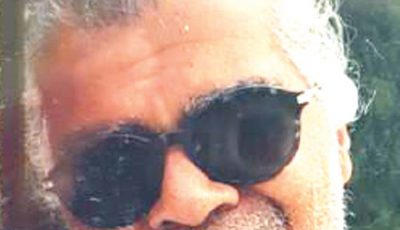Habitual offender moves for mistrial of theft case
A habitual offender has moved for mistrial in his theft case charging him for stealing a purse that contained money after the government allegedly suppressed evidence when a witness testified that a police detective showed her with a photo lineup, but the detective denied it.
Assistant public defender Tillman Clark, counsel for defendant Peter Lemei Koichi, argued that to allow the bench trial to proceed would be to sacrifice Koichi’s right to due process, right to present a defense, right to a fair trial, and right to effective assistance of counsel.
It was already in the middle of bench trial last Aug. 16 when Clark moved for mistrial for violation of his due process rights under Brady. This prompted Superior Court Associate Judge Joseph N. Camacho, who presided over the trial, to suspend the proceedings to have a hearing on the issue on Sept. 14.
Brady material refers to a piece of evidence known to the prosecution that is important for establishing the innocence or reducing the punishment of a defendant.
The Office of the Attorney General has charged Koichi with misdemeanor theft for allegedly stealing
The government alleges that Koichi stole a purse from a woman while she was sitting in a friend’s garage playing cards on April 10, 2016.
At the bench trial on Aug. 16, the prosecution called several witnesses, including the alleged victim, and police officer Ralph Rangamar.
In Koichi’s motion for mistrial, Clark said the third witness testified that she was an eyewitness to the incident, and was sitting at the same table as the alleged victim when the incident occurred.
Upon Clark’s cross examination, the witness testified that while at the police station, on April 12, 2016, she was interviewed by a detective.
She testified that the detective, whose name she could not remember, typed up her oral statement, showed it to her, printed it, and then had her sign the statement.
She further testified that the same detective, prior to printing out and having her sign her statement, showed her a series of photographs and asked her if she could recognize anyone from the photographs.
She testified that she told the detective that she did not recognize anyone in the photos.
At that point, Clark said he finished his cross examination of the witness and consulted with co-counsel.
Clark then requested that the court order a mistrial in the case due to the unconstitutional suppression of exculpatory evidence by the government.
Camacho then suspended the proceedings to have a hearing on the issue.
The witness was called back in and examined by Koichi’s counsel.
Police Detective Andrew Taimanao also testified that he remembered the witness and that he took her statement, but that he did not remember showing her any photographs.
Clark said Taimanao testified that in all his cases, if he shows a photo lineup to a witness, there is only one photo lineup created, if 12 people, and that includes the suspect.
Clark said Taimanao testified that it would shock him to learn that the witness testified that he showed her photographs.
Clark cited that in Brady v. Maryland, the U.S. Supreme Court held that “the suppression by the prosecution of evidence favorable to an accused …violates the due process where the evidence is material either to guilt or to punishment, irrespective of the good faith or bad faith of the prosecution.”
Clark said the evidence in question is clearly Brady material and the government has suppressed the evidence.
Clark said it is Koichi’s position that it is incredible as a matter of fact and law to believe that the witness came into court, under oath, and made up a story about being shown a photo lineup by Detective Taimanao.
Clark said it is for more believable that a detective with dozens of active cases made a mistake than it is to believe that the witness came into court and lied under oath.
Clark said allowing the case to proceed is not appropriate since Koichi has not had any opportunity to tailor his defense to include the favorable evidence suppressed by the government, which would have vast ripple effects on the entirety of Koichi’s preparation and presentation of his case.
























